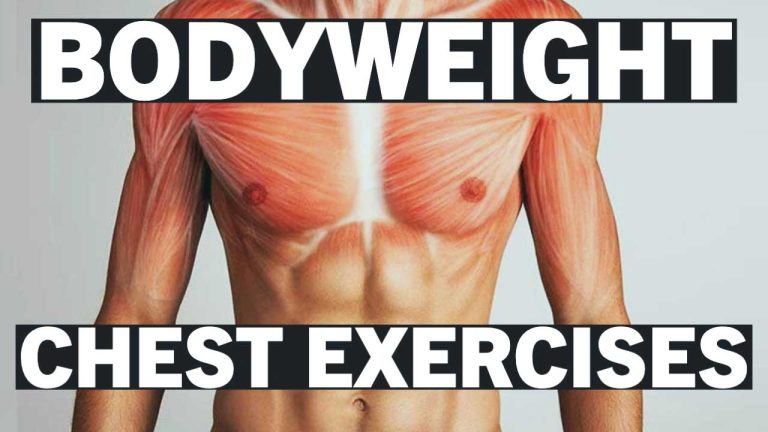When Is the Best Time to Exercise? – What The Science Says

ListedFit is reader-supported. When you buy through links on our site, we may earn a small commission.
We all know that exercising regularly is essential for maintaining a healthy lifestyle, but when is the best time to exercise? Many of us have our own preferences, but science has a few things to say about it, too.
It turns out that when you hit the gym can have a major impact on your workout, so it’s important to take timing into consideration.
In this article, we’ll discuss what science has to say about when is the best time to exercise and when you should hit the gym to get the most out of your workout. We’ll also look at how different times of the day can affect your body, energy levels, and overall performance.
With this information, you’ll be able to maximize your workouts and get the most out of your time at the gym.
Table of Contents
- What Science Says About the Best Time to Exercise
- Morning Workouts
- Afternoon Workouts
- Evening Workouts
- Conclusion
What Science Says About the Best Time to Exercise
The time you choose to exercise has a significant impact on your overall health and fitness. While there isn’t a perfect time that works for everyone, there are some general guidelines that can help you decide when to exercise for optimal results.

If you’re not sure what time to hit the gym, consider these factors to help you decide.
First, you’ll want to consider your energy levels throughout the day. Research shows that people have greater energy and focus in the mornings, while energy levels tend to decline throughout the day. This means that morning workouts tend to be more productive, as you’ll have more energy and be able to put more effort into your workout.
This isn’t to say that you can’t have a great workout at any other time of day, but it’s generally easier to exercise in the morning than it is in the afternoon or evening. And while energy levels are higher in the morning, this time of day is good for another reason. Exercising in the morning provides you with a natural boost of adrenaline and cortisol, which can help you stay more motivated.
Another factor to consider when choosing your workout time is your appetite. Research shows that people tend to have greater appetites in the afternoon and evening. This can make it more challenging to stick to a healthy diet when you’re exercising later in the day. If you have trouble controlling your cravings when you exercise in the afternoon or evening, morning workouts might be a better option for you.
Morning Workouts
If you’re naturally a morning person, you’re of course going to be more inclined to hit the gym first thing in the morning. While this may work well for you, it’s important to note that there are some benefits to exercising at other times of the day too.
Let’s take a look at what science says about morning workouts.
First, research shows that people are more likely to stick to their exercise routine when they exercise in the morning. Exercising in the morning provides you with a natural boost of energy that can help you stay motivated to meet your fitness goals.
When you exercise in the morning, your body releases cortisol, which can increase your metabolism and help you burn fat. This is ideal if you’re trying to lose weight.

Afternoon Workouts
If you prefer to work out in the afternoon, there are some benefits to this too. Let’s take a look at what science says about afternoon workouts.
First, you might find it easier to stick to your exercise routine if you exercise in the afternoon. You’ll have more energy and focus, and you’ll be less likely to skip a workout if you exercise during your workday.
A workout in the afternoon can help to avoid the exhaustion that usually occurs at the end of the day. According to research conducted by the Journal of Physiology, exercising between 1 pm and 4 pm can have the same effect as an early morning workout in terms of adjusting the body clock. Even a short walk may help in becoming alert and concentrating better.
Research from 2018 suggests that the human body burns about 10% more calories in the late afternoon, as opposed to the early morning and late night. Although the research was based on bodies at rest, one may burn more calories when being active in the afternoon.
Evening Workouts
The Journal of Physiology’s study discovered that exercising between 7 p.m. and 10 p.m. can cause a delay in the body clock, leading to later bedtimes. Although, as long as you don’t quickly shower after a workout before bedtime, it won’t affect your sleep. Relaxing activities such as yoga can even help you sleep better if they are done at night.

Although the research on morning workouts and weight loss is more established, a 2019 paper published in Experimental Physiology noted that nighttime workouts don’t disturb sleep and can gradually reduce the levels of the hunger hormone ghrelin, which might aid weight loss or maintenance.
Exercising at night can also help lower your stress levels, which can be helpful if you’re experiencing anxiety or stress.
Conclusion
Whether you hit the gym early in the morning, in the afternoon, or in the evening, there are benefits to each time of day.
Knowing what time of day works best for you can help you stick to a fitness routine and meet your health and fitness goals. Exercising at different times of day can also have different benefits, so it’s important to consider your overall health when choosing a time to exercise.
Be sure to warm up, stretch regularly, and stay mindful of your diet when you exercise. When you do these things, you can get the most out of your workouts and reap the health benefits of a regular exercise routine.
Author
Latest entries
 GearJuly 20, 2024Headphones and Earbuds – Tried and Tested!
GearJuly 20, 2024Headphones and Earbuds – Tried and Tested! FitnessAugust 19, 2023Yohimbe vs Yohimbine: A Quick Comparison Guide
FitnessAugust 19, 2023Yohimbe vs Yohimbine: A Quick Comparison Guide AshwagandhaJune 16, 2023Is Ashwagandha Good for Working Out? Key Benefits Explored
AshwagandhaJune 16, 2023Is Ashwagandha Good for Working Out? Key Benefits Explored Sports HeadphonesMay 25, 2023Why Your EarBuds Keep Falling Out – Quick and Easy Solutions
Sports HeadphonesMay 25, 2023Why Your EarBuds Keep Falling Out – Quick and Easy Solutions
Affiliates:
This post may contain affiliate links that at no additional cost to you, the site may earn a small commission. We only recommend products we would use ourselves and all opinions expressed on this site are our own.
General Advice:
The information provided in this article is for general informational purposes only. It is not intended as a substitute for professional advice. Always consult with a qualified healthcare professional before starting any new diet, exercise program, or making changes to your health routine.
Accuracy Advice:
While we strive to provide up-to-date and accurate information, the content in this article may not reflect the most current research or medical guidelines. We encourage readers to do further research and consult with professionals for more personalized advice.
Our Recommendations:
The products and services mentioned in any of our articles are recommended based on our independent research and personal experience. We are not sponsored by any company. We aim to suggest products and services we believe are of high quality and could be beneficial to our readers.






